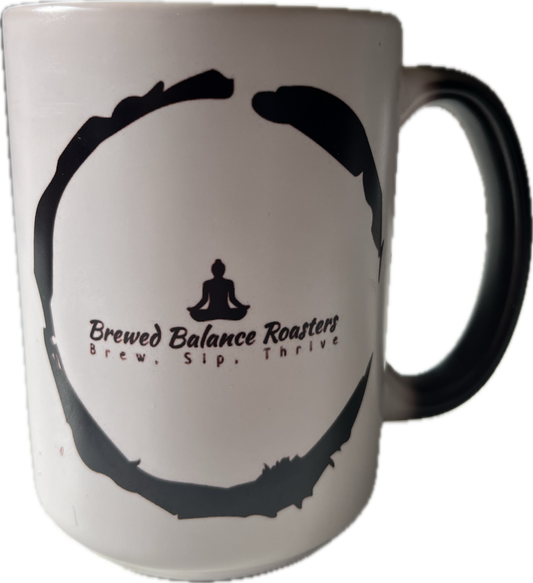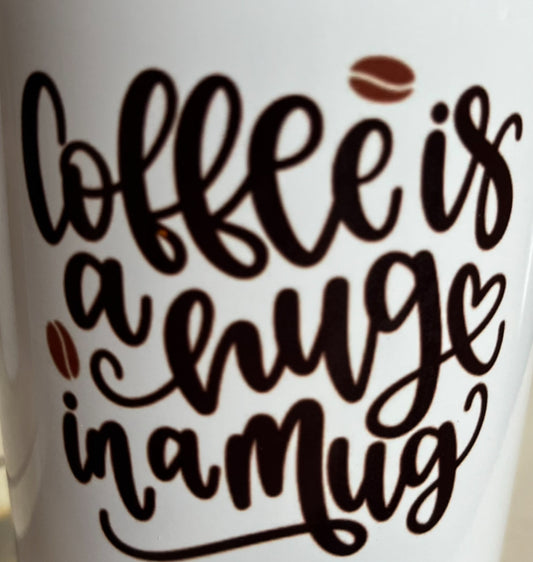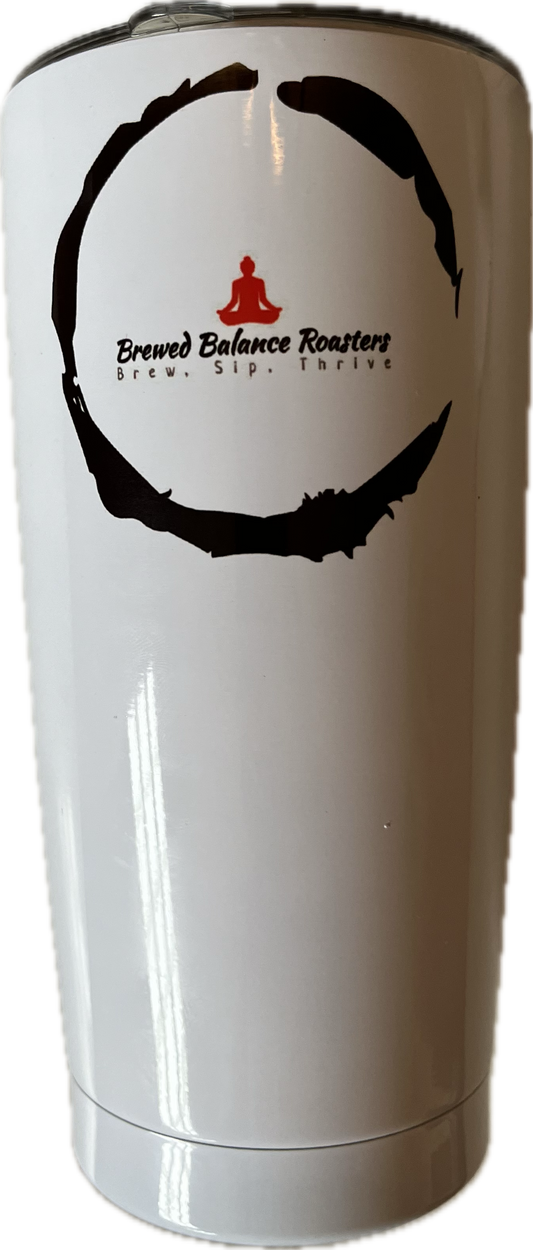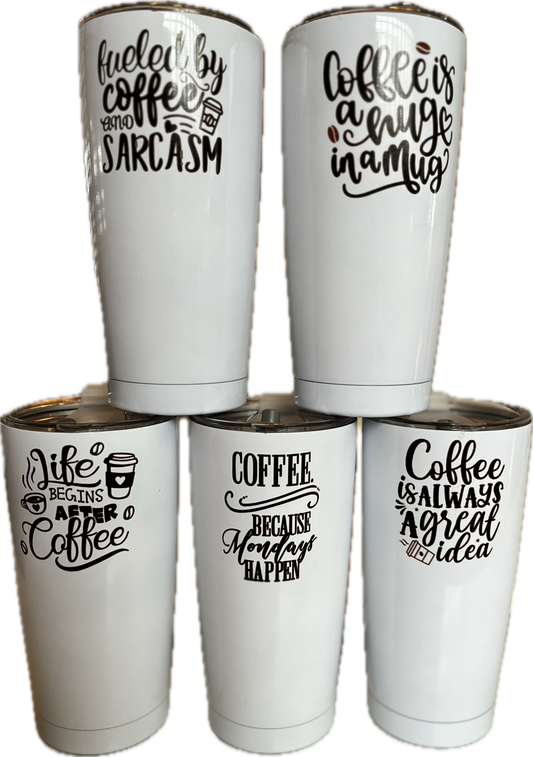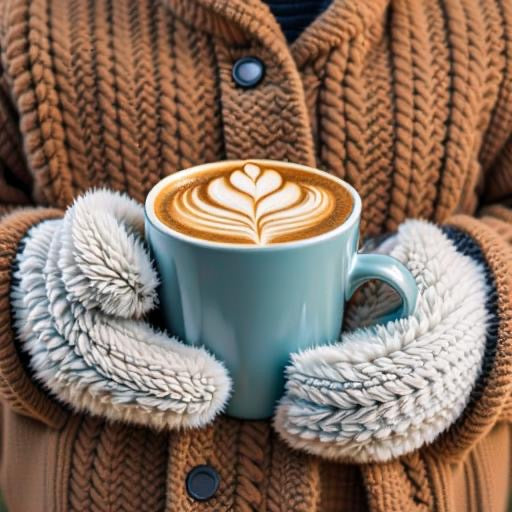-
Changing Color Coffee Mug 15 oz
Regular price $15.95 USDRegular priceUnit price per -
20 oz. Stainless Steel Travel Mug
Regular price $19.95 USDRegular priceUnit price per -
Brewed Balance Roasters Gift Card
Regular price From $10.00 USDRegular priceUnit price per
Why Buy Our Beans??
Whole bean coffee refers to coffee that is sold
in its purest form: as whole, unground beans. This form preserves the coffee's
freshness and flavor since the beans only start to release their oils and
aromas when they are ground. Here are a few interesting points about whole bean
coffee:
Flavor Preservation
Whole bean coffee retains its flavor better than pre-ground coffee. Grinding
coffee increases its surface area, exposing it to air and accelerating the loss
of volatile compounds that contribute to the coffee's taste and aroma. By
keeping the beans whole until just before brewing, you can enjoy a more robust
and flavorful cup.
Customizable Grind Size
One of the advantages of buying whole bean coffee is the ability to customize
the grind size according to your brewing method. Different brewing methods,
such as French press, pour-over, or espresso, require different grind sizes.
Having whole beans allows you to grind them to the coarseness or fineness that
suits your preferred brewing method.
Aroma Experience
The aroma of freshly ground coffee is an integral part of the coffee-drinking
experience. When you grind whole beans just before brewing, you release the
rich, enticing aroma that can enhance the overall enjoyment of your coffee.
Extended Freshness
Whole bean coffee has a longer shelf life compared to ground coffee. Once
coffee beans are ground, they begin to lose their freshness more rapidly. Whole
beans, when stored properly in a cool, dark place and an airtight container,
can maintain their flavor for a more extended period.
Ethical and Sustainable Choices
Many coffee enthusiasts who prioritize sustainability and ethical sourcing
prefer whole bean coffee. It allows them to choose beans from specific regions,
farms, or cooperatives, ensuring that they support ethical and sustainable
practices in the coffee industry.
Craft Coffee Culture
Whole bean coffee is often associated with a more artisanal and craft coffee
culture. Coffee enthusiasts who appreciate the nuances of different coffee
beans and brewing methods often prefer whole beans for a more hands-on and
customized coffee experience.
Whether you're a casual coffee drinker or a
passionate coffee connoisseur, exploring the world of whole bean coffee can add
a new dimension to your coffee journey, allowing you to savor the true essence
of the coffee bean.
Frequently Asked Questions
What is coffee and where does it come from?
Coffee is a beverage made from the roasted seeds of coffee plants. It is commonly grown in regions near the equator, such as Central and South America, Africa, and Southeast Asia.
What are the different types of coffee beans?
The two primary types of coffee beans are Arabica and Robusta. Arabica beans are known for their mild flavor and acidity, while Robusta beans have a stronger, more bitter taste.
How is coffee grown and harvested?
Coffee is typically grown as a crop, with the coffee cherries harvested when they are ripe. The cherries are then processed to extract the coffee beans.
What is the difference between light, medium, and dark roast coffee?
The roast level of coffee refers to how long the beans are roasted. Light roast coffee has a milder flavor and higher acidity, while dark roast coffee is bolder and less acidic.
How should I store coffee beans to keep them fresh?
Coffee beans should be stored in an airtight container in a cool, dark place. Avoid storing them in the refrigerator or freezer, as moisture and odors can affect the flavor.
What is the best way to brew coffee at home?
There are various methods for brewing coffee, including drip brewing, French press, pour-over, espresso, and more. The best method depends on your preferences and equipment.
Is coffee healthy or harmful?
Moderate coffee consumption is generally considered safe and may have health benefits, such as improved mental alertness and antioxidant properties. However, excessive consumption can have negative effects, such as insomnia and increased heart rate.
How much caffeine is in a cup of coffee?
The caffeine content in coffee can vary widely depending on factors like the type of beans and brewing method. On average, an 8-ounce cup of coffee contains around 95 milligrams of caffeine.
Can I drink coffee during pregnancy or while breastfeeding?
It's recommended that pregnant individuals limit their caffeine intake, as excessive caffeine consumption may be associated with adverse pregnancy outcomes. Consult with a healthcare provider for specific guidance.
What is the best time to drink coffee for maximum alertness?
The best time to drink coffee for alertness varies from person to person. Many people find that morning is ideal, but it depends on your individual circadian rhythms and daily routine.
How can I reduce the bitterness of my coffee?
To reduce bitterness, consider using fresher beans, adjusting your brewing time and temperature, and experimenting with different coffee-to-water ratios.
Are there alternatives to traditional coffee for those who don't like caffeine?
Yes, there are many caffeine-free coffee alternatives, such as herbal teas, decaffeinated coffee, and various grain-based coffee substitutes.

